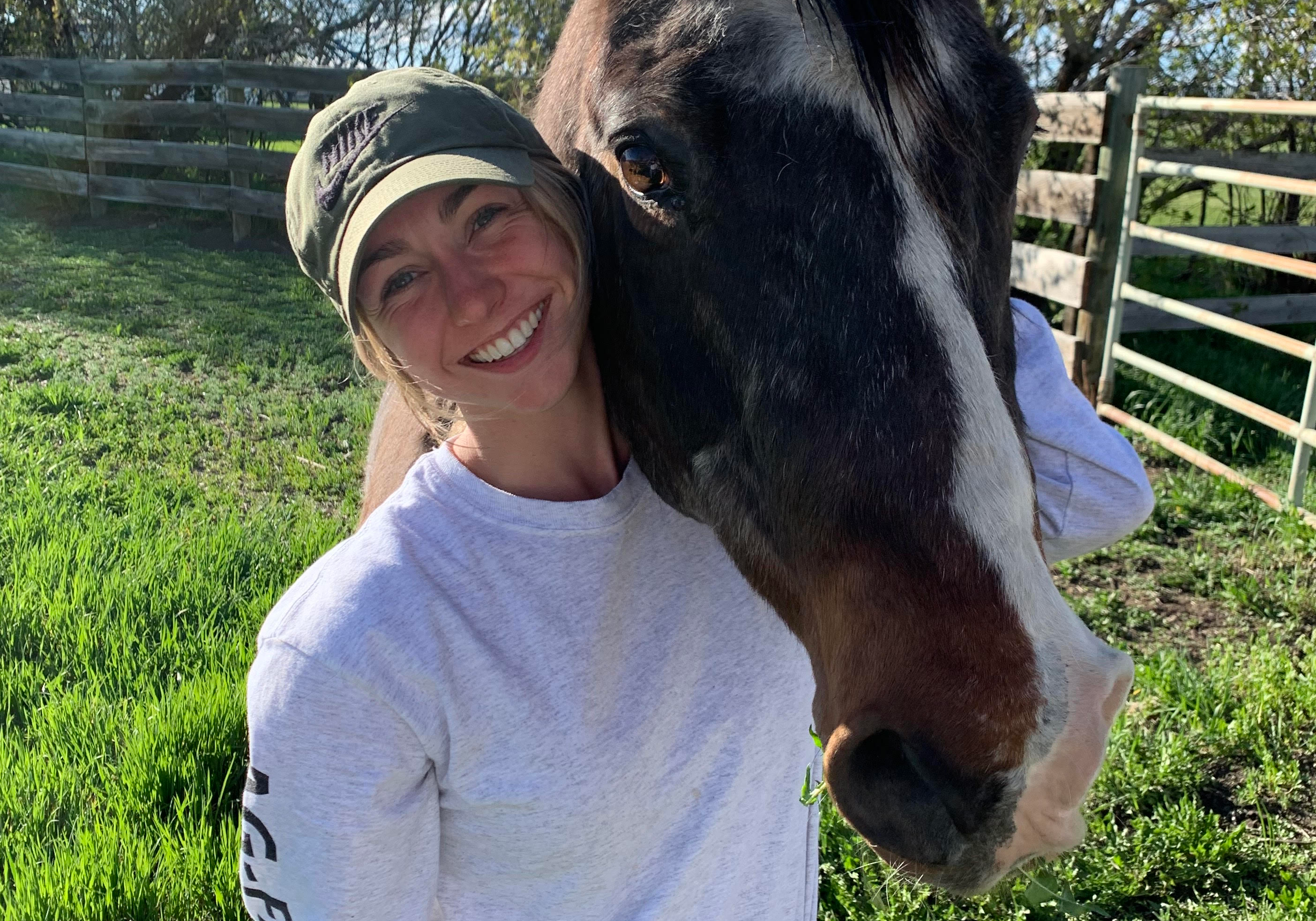
Nicole Zukiwsky grew up as a city girl, but she’s passionate about poultry. And as she graduates from the University of Alberta this week for the second time, she hopes to use her two agricultural degrees to teach others about all she’s learned.
“I want to share the same kind of excitement for agriculture and animal science I felt as a student, and I hope to keep sharing and expanding my knowledge in the process.”
She shares her thoughts below.
What degree are you graduating with this fall?
I’m graduating with a master’s degree in animal science from the Faculty of Agricultural, Life & Environmental Sciences (ALES), specializing in poultry science. I also graduated in 2018 with a bachelor of science in agriculture with distinction from ALES, where I majored in animal science.
Why study animal science?
I wanted to become a veterinarian, and an agriculture degree was one route to a spot in a vet medicine program. But over the course of my BSc, I realized this wasn’t the career I wanted. I developed a passion and appreciation for agriculture, specifically for animal science. I was born and raised in Edmonton, so I had very little exposure to livestock, but I fell in love with poultry from the first moment that I held a chicken during my program. The instructors of one of my first classes were poultry advocates—they were so passionate about their work and love for chickens. They had their own community of "chicken people," and I felt like I fit in.
I became more interested in poultry-specific courses and invested my time in gaining university experiences, like joining the Poultry Research Centre Student Club, working on Alberta poultry farms and attending conferences that allowed me to create relationships with companies such as Maple Leaf, Cargill, poultry producers, veterinarians and other researchers. Ultimately, I had the opportunity to pursue a master’s degree in poultry science with an incredible research project and mentors like Martin Zuidhof and Frank Robinson, and I jumped at the opportunity.
I have to add, my master’s program was life-changing. I gained many personal skills that shaped me into the person I am today. I would hands-down recommend doing a MSc to anyone!
Teaching allows me to be part of a community, and I can create meaningful connections with students.
You won some teaching awards while at the U of A. What do you love about teaching?
I received the MSc Graduate Student Teaching Award through the Department of Agricultural, Food & Nutritional Sciences, and I was the only Canadian graduate student in 2020 to receive the North American Colleges and Teachers in Agriculture Graduate Student Teaching Award.
I’ve been involved with teaching since the second year of my undergraduate program. I started as a learning coach and then a teaching assistant for Animal Science 101, an introductory course that is so memorable for students because it teaches the foundational aspects of animal science and livestock production, but is also a fun and effective learning community. I was also a learning coach for a fourth-year poultry science course where I assisted with teaching hands-on labs.
Teaching allows me to be part of a community, and I can create meaningful connections with students. I also love that, as an instructor, you can make a difference for students by enhancing their learning experience. There’s nothing more rewarding than watching them grow over a semester, and at the same time see them having fun and making lifelong connections in the process!
What else did you learn at the U of A?
I realize I’ve developed a unique perspective on the value of relationships and how life is more enjoyable when meaningful relationships are created. Part of this is because I’ve had the chance to work with a diverse number of other graduate students, researchers and poultry experts from all around the world. I have also worked with students while being a student, so I feel that I could be relatable, but also learn from them.
What’s next for you?
Through my many teaching experiences over the course of my degree studies, I've developed a passion for teaching and learning about animal science and, more broadly, agriculture. Ag is such an important aspect of society, and there will always be a need for it. Food production, for example. And as society changes, so will agricultural practices—there is room for growth and innovation, which excites me. I would love to continue into a long-term career in animal science at an agricultural college in Alberta or, later on, at a university.